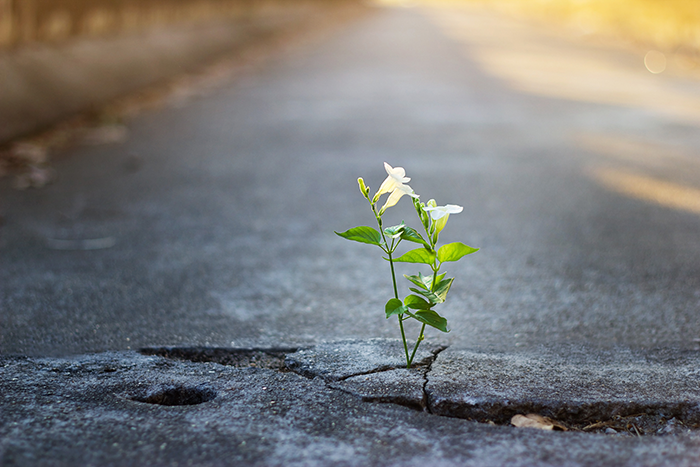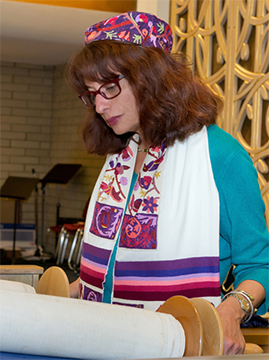
Hope is hard to find these days, yet we need it now more than ever. Hope can spring from the most desperate places - like a daisy between sidewalk cracks or even from a site like the Twin Towers in New York City, destroyed on September 11, 2001.
"The Survivor Tree," a half trunk charred black with broken roots and one living branch found at the site of 9/11 was discovered a month after the collapse of the towers. It was headed for the dump until a young woman named Rebecca Clough begged that the tree be given a chance. The tree survived and was returned to the site of the 9/11 Memorial. Now, more than 20 years later, its branches are bright with blossoms in the spring.
All it took was someone believing in that little charred trunk, someone to believe in a different outcome than what everyone else expected. It took someone with hope. Hope is not a belief that problems will magically disappear; It is a choice about how to tackle life's challenges.
Jane Goodall, the world's foremost expert on chimpanzees, wrote about The Survivor Tree in "The Book of Hope: A Survival Guide for Trying Times." She makes a distinction between hope and optimism: "Hope…is a stubborn determination to do all you can to make it work. And hope is something we can cultivate…Hope does not deny all the difficulty and all the danger that exists, but it is also not stopped by them. There is a lot of darkness, but our actions create light."
Hope is a very Jewish value. The late Chief Rabbi of Great Britain, Rabbi Jonathan Sacks, taught in his essay "Future Tense: How the Jews Invented Hope:" "Western civilization is the product of two cultures: ancient Greece and ancient Israel. The Greeks believed in fate: the future is determined by the past. Jews believed in freedom: there is no 'evil decree' that cannot be averted. The Greeks gave the world the concept of tragedy. Jews gave it the idea of hope."
Think about our central story -- the Exodus. The enslaved Israelites were in bondage for hundreds of years. If the story were told in ancient Greece, they may have seen bondage as a prescribed occurrence beyond anyone's ability to change. But in the Hebrew Bible, Moses had a different vision of the future: Israelites free from bondage, living in a land of their own. The Exodus story tells us that our circumstances don't define us, we can change them for a better future.
Hope is really a decision to fight against the odds, no matter how forbidding. Holocaust survivor Elie Wiesel once told Reform Judaism, "One must wager on the future. I believe it is possible, in spite of everything, to believe in friendship in a world without friendship, and even to believe in God in a world where there has been an eclipse of God's face…we must not give in to cynicism…To defeat injustice and misfortune, if only for one instant, for a single victim, is to invent a new reason to hope."
We all need to find some light right now in what often appears to be a very dark world. Whether it's the war in Israel, the war in Ukraine, effects of the coronavirus pandemic, acceleration of climate change, gun violence, or limiting the right to abortions, democracies are at risk in so many places, including here in the United States. But Jane Goodall says in "The Book of Hope:" "When we face adversity, it is hope that gives us the confidence to rally our indomitable spirit to overcome it."
In the end, hope is really a strategy, not a feeling, and it is within our power to call it forth. You might say, "changing the world takes a lot of time. I don't have an unlimited number of years to see the change I want." We need to keep our eyes on the prize, even if the prize is far in the future. We need to believe in and build a future even if we may not be there to experience it. We must plant seeds for our children and grandchildren so that they might experience a better world. After all, that is our obligation as Jews. In the words of Rabbi Sacks in "Future Tense: How the Jews Invented Hope", "To be a Jew is to be an agent of hope in a world serially threatened by despair…Judaism is a sustained struggle…against the world that is, in the name of the world that could be, should be, but is not yet."
Let's set about changing the world - if not for us, then at least for the sake of our posterity.
Related Posts

Harnessing the Power of our Mothers Around the Seder Table

Melding Tradition and Innovation: Our Interfaith Toddler Naming Ceremony


